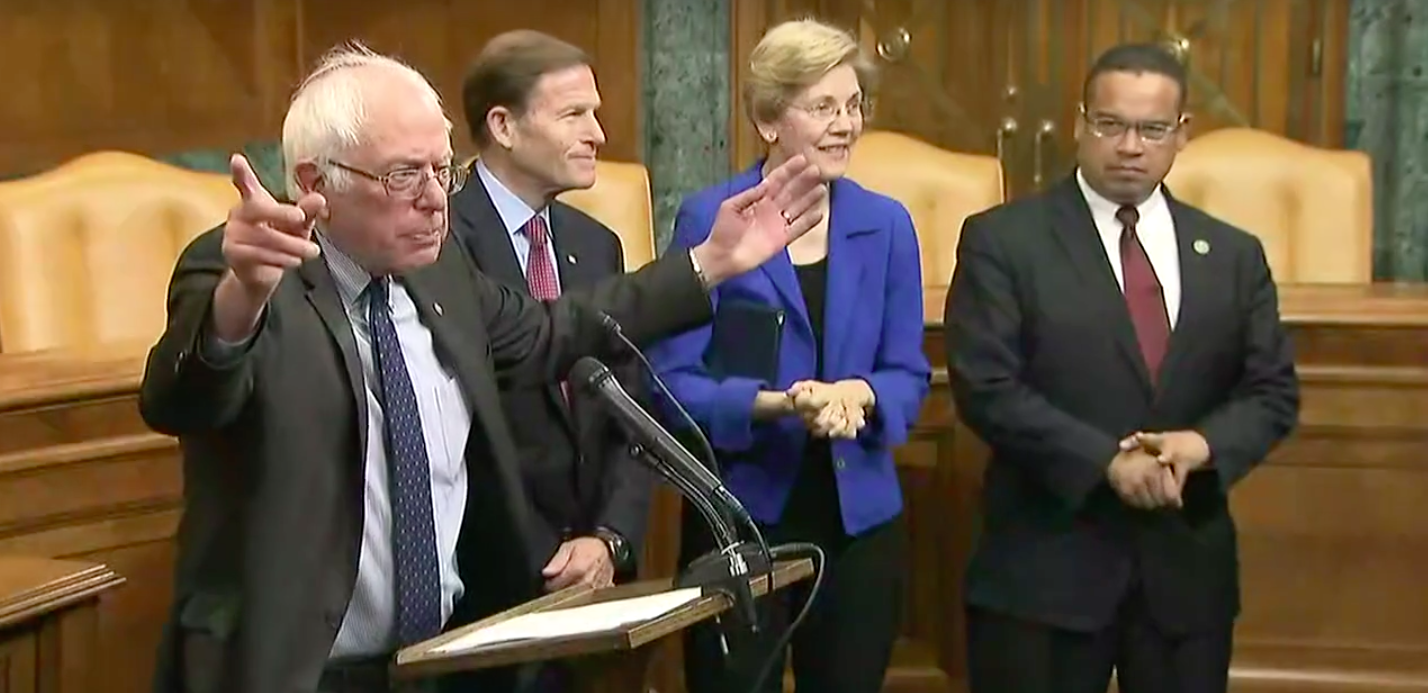Bernie Sanders Is Pushing for Free College Again, This Time with Backup

By:
Bernie Sanders is introducing a free college bill again, but this time he has a team of high profile Democrats behind him.
 Facebook/U.S. Senator Bernie Sanders - facebook.com
Facebook/U.S. Senator Bernie Sanders - facebook.com
The Independent senator from Vermont introduced the College For All Act on Monday with co-sponsors including Massachusetts Senator Elizabeth Warren, New York's Kirsten Gillibrand, California's Kamala Harris, and Connecticut's Richard Blumenthal and Chris Murphy.
“Higher education in America should be a right for all, not a privilege for the few,” Sanders said. “If we are to succeed in a highly competitive global economy and have the best-educated workforce in the world, public colleges and universities must become tuition-free for working families and we must substantially reduce student debt.”
The College for All Act aims to give states and tribes at least $41 billion dollars per year to end tuition and fees at four-year public colleges and universities for American families making up to $125,000 a year, and makes community college free for everyone. Sanders proposed a tax on trades of Wall Street stocks, bonds, and derivatives to fund the $600 billion plan, however this bill does not address that aspect of the funding, according to a fact sheet by Sanders' office. The Wall Street tax will be proposed in a separate bill.
Washington's Rep. Primila Jayapal is introducing a version of the bill in the House of Representatives, with a long list of co-sponsors, including Minnesota Representative Keith Ellison.
As Vox's Jeff Stein pointed out, this is a stark difference from Sanders 2015 College for All Act which had no co-sponsors.
Sanders made publicly funded or "free" college a central focus of his 2016 presidential campaign, which helped popularize the concept among young Democratic voters. The unsuccessful Democratic nominee, former Secretary of State Hillary Clinton, made a modified version of Sanders' original free college plan a part of her platform in July of 2016.
Clinton's plan offered fully subsidized tuition to students whose families make less than $125,000 by 2021, with staggered implementation that would have started in 2017.
During Monday's press conference, Murphy, a co-sponsor of the bill, said that he doesn't want new students to be in the same position he is in now.
“My wife and I are still paying back our student loans, but we're some of the lucky ones who can save for our kids’ futures," said Murphy. "Instead, too many families in Connecticut are suffocating under crushing student loan debt. We need to revolutionize the way we think about higher education and ensure colleges share responsibility for the success of their graduates."
